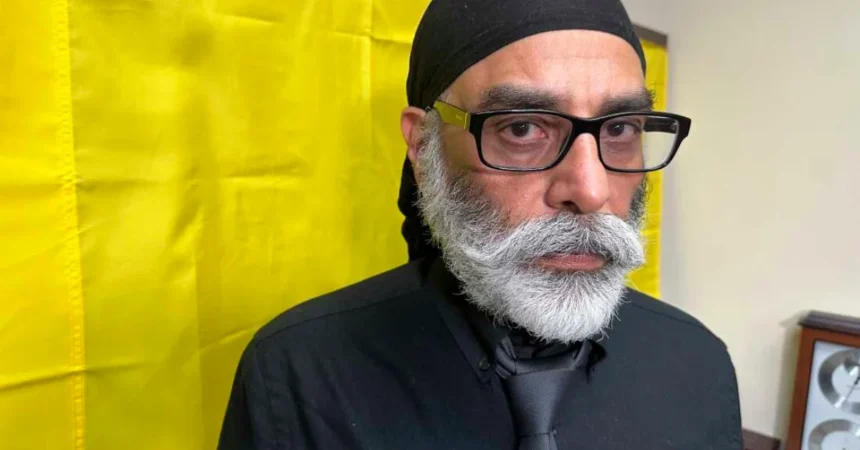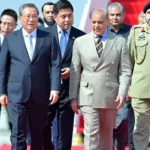In a significant development in international relations, the United States has charged an Indian intelligence agent in connection with an alleged plot to assassinate a Sikh separatist leader, Gurpatwant Singh Pannun. This incident highlights ongoing tensions between India and Sikh separatists abroad and raises critical questions about the lengths to which nations may go to pursue their interests. This article delves into the details of the case, the reactions it has sparked, and the broader implications for U.S.-India relations.
Background on the Case
The charges against the Indian agent were announced by U.S. authorities, who claim that the plot was part of a broader campaign against Sikh separatists advocating for an independent Sikh state, often referred to as Khalistan. Gurpatwant Singh Pannun, the target of the alleged assassination plot, is known for his vocal advocacy and leadership within the separatist movement, which has been a contentious issue between India and the Sikh diaspora.
Who is Gurpatwant Singh Pannun?
Pannun is a prominent figure in the Khalistani movement and has been actively involved in mobilizing support among the Sikh community worldwide. He has faced legal challenges and backlash from the Indian government, which considers the movement a threat to national integrity. Pannun’s influence has grown in recent years, particularly among Sikhs living in North America and Europe, where he has sought to garner support for the idea of Khalistan.
- Early Life and Education
Gurpatwant Singh Pannun was born in Punjab, India, and later moved to the United States, where he pursued higher education. His experiences growing up in India during a time of political unrest shaped his views on the rights of Sikhs and the need for a separate homeland. Pannun’s educational background in law has equipped him with the skills to navigate complex legal systems, which he has utilized in advocating for Sikh rights and highlighting issues faced by the Sikh community globally.
- Early Activism and Mobilization
After relocating to the United States, Pannun became actively involved in various Sikh organizations and movements that aimed to raise awareness about the historical injustices faced by Sikhs in India. His early activism was characterized by community organizing, public speaking engagements, and participation in protests that sought to address issues such as human rights violations and the political disenfranchisement of Sikhs. Pannun’s ability to articulate the grievances of the Sikh community resonated with many, helping to galvanize support and foster a sense of solidarity among Sikhs in the diaspora. Through his efforts, he has played a pivotal role in mobilizing a new generation of Sikhs who are passionate about advocating for their rights and seeking justice for past atrocities.
- Advocacy for Khalistan
Pannun has emerged as a key spokesperson for the Khalistan movement, which seeks to establish a sovereign Sikh state in India. He believes that Sikhs deserve the right to self-determination and has been vocal about historical grievances, including the 1984 anti-Sikh riots and ongoing discrimination faced by Sikhs in India. His advocacy has been characterized by public speeches, social media campaigns, and participation in protests, aiming to raise awareness about the plight of Sikhs and garner international support for the Khalistan cause.
- Legal Challenges
As a prominent figure in the separatist movement, Pannun has faced several legal challenges, including accusations of promoting terrorism and inciting violence. The Indian government has labeled him a fugitive and has sought his extradition to face charges in India. However, Pannun maintains that his activism is rooted in a peaceful pursuit of rights and self-determination for Sikhs. His legal battles have drawn attention to issues of political freedom and the right to dissent, igniting debates over free speech and the treatment of political activists.
- Growing Influence in the Diaspora
Pannun’s influence has particularly surged among Sikhs in the diaspora, especially in Canada, the United States, and the United Kingdom. He has utilized digital platforms to connect with younger generations of Sikhs, fostering a sense of identity and community among those living outside India. His ability to mobilize support through social media campaigns has helped him build a significant following, making him a notable figure in discussions surrounding Sikh rights and Khalistan.
- Relations with Other Sikh Leaders
While Pannun has garnered support from various segments of the Sikh community, he has also faced criticism from some established Sikh leaders and organizations. Disagreements about the methods and goals of the Khalistan movement have led to divisions within the community. Some leaders argue for a more moderate approach to addressing Sikh issues, while others support Pannun’s assertive stance. This complex landscape of opinions reflects the diverse perspectives within the Sikh community regarding the future of Sikh identity and rights.
- Recent Developments
In recent years, Pannun’s activities have drawn increased attention from Indian authorities, particularly as he has continued to gain traction among Sikh youth. His involvement in organizing protests and raising awareness about Sikh issues has led to heightened scrutiny of his actions. The alleged assassination plot against him, as charged by U.S. authorities, marks a significant escalation in the tensions between Indian intelligence and Sikh separatists abroad. This situation underscores the high stakes involved in Pannun’s advocacy and the broader implications for the Khalistan movement.
Details of the Allegations
According to U.S. prosecutors, the Indian agent is accused of planning to kill Pannun in a bid to silence his calls for a separate Sikh state. The indictment alleges that the agent received support from Indian intelligence agencies, which are believed to have orchestrated this plot as part of their efforts to combat what they perceive as threats to India’s sovereignty.
- The Indictment
The indictment details how the agent was allegedly recruited and the methods that were planned for carrying out the assassination. It includes information about communication between the agent and Indian intelligence officials, showcasing a calculated approach to target Pannun. The legal documents highlight the seriousness of the allegations and the potential ramifications for those involved.
International Implications
This case could have far-reaching implications for international relations, particularly between the United States and India. The allegations of state-sponsored assassination plots are serious and could strain diplomatic ties. As the world’s largest democracy, India is expected to adhere to international norms, and these allegations could challenge that image.
- Reactions from India
In response to the charges, Indian officials have categorically denied any involvement in the alleged plot against Pannun. The Indian government has often criticized foreign countries for harboring separatists and has called for action against individuals advocating for Khalistan. This incident may further complicate India’s relations with Western nations, particularly if more evidence emerges linking the government to the assassination plot.
Community Reactions
The Sikh community has reacted strongly to the news of the charges against the Indian agent. Many see this as validation of their long-standing concerns about threats to their leaders and activists abroad. Sikh organizations in North America and Europe have expressed solidarity with Pannun and have called for greater protection for those advocating for Sikh rights.
- Voices from the Sikh Diaspora
Activists within the Sikh community have welcomed the U.S. charges, viewing them as a crucial step toward accountability for state-sponsored violence. They have urged the international community to recognize the plight of Sikhs advocating for their rights and to take action against countries that resort to intimidation and violence against dissenting voices.
The Role of International Law
The allegations against the Indian agent raise important questions about international law and state sovereignty. If proven true, the charges could set a precedent for how countries handle dissent and opposition abroad. Legal experts argue that states must be held accountable for actions that violate international norms, especially concerning extraterritorial violence.
- Legal Precedents
International law prohibits extraterritorial actions that infringe on the sovereignty of other nations. Cases like this one could influence how countries engage in covert operations and conduct themselves on the global stage. Legal experts are closely monitoring this situation, as it may open discussions about reforming how nations interact regarding matters of sovereignty and human rights.
The charges against the Indian agent highlight the complexities of international relations and the ongoing struggles faced by marginalized communities. As this case unfolds, it will be essential to observe how it impacts U.S.-India relations, the Sikh community, and the broader discourse on human rights and state-sponsored violence. The outcome of this case may not only affect the individuals involved but could also influence future diplomatic interactions between countries grappling with separatist movements and human rights concerns.
#USIndiaRelations #SikhSeparatism #GurpatwantSinghPannun #HumanRights #InternationalLaw #Khalistan







